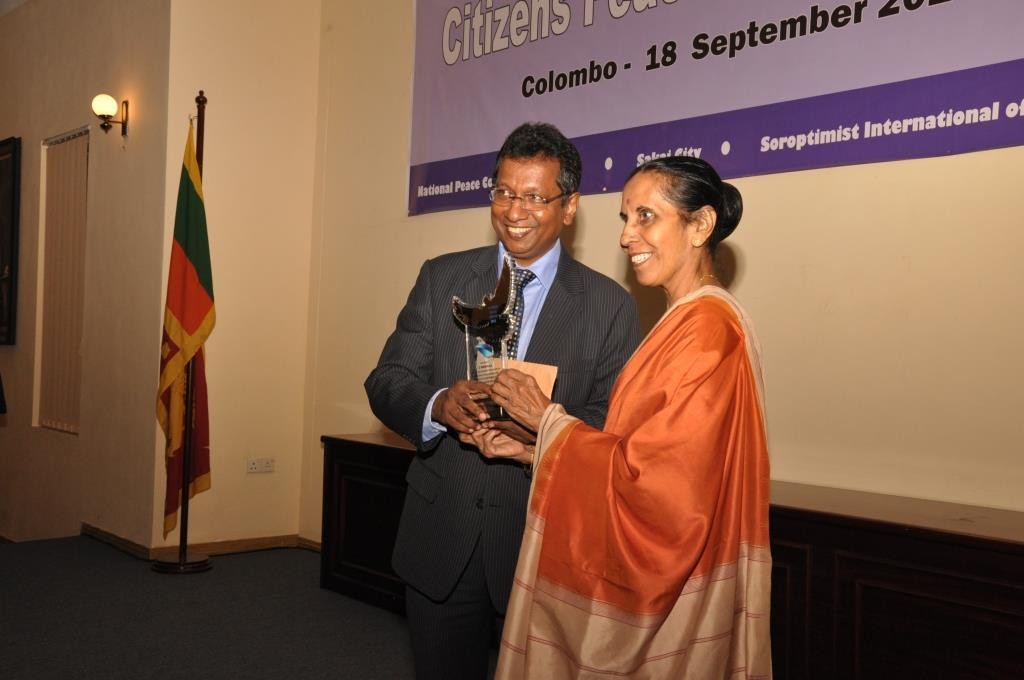Image courtesy Colombo Telegraph
J.C. Weliamuna is a well-known Attorney-at-Law, human rights activist and is this year’s recipient of the Citizens Peace Award. His acceptance speech flagged the degree to which democratic governance had eroded in Sri Lanka, in full view of citizenry, and the importance of protecting civil liberties by speaking out, despite the risk of doing so.
Also in his speech, Weliamuna noted “I do not mind failing – in fact I have had enough failures – but I cannot afford not to try and do something about it.” This is the starting point for our conversation – looking at what in his life Weliamuna had failed in achieving and the reasons for this failure. He then answers an equally direct question around whether the population in the South – no matter how many times he has stood up in different fora, written and spoken about emotive, complex issues – interested in the kind of systemic change he desires. In other words, whether there is any greater any greater traction for the ideas he embodies and promotes post-war, particularly in the South.
Looking at why Weliamuna thinks that even after the end of the war, conflict still persists in Sri Lanka, Weliamuna talks about how difficult socio-political change is in Sri Lanka, given in particular the paucity of information and debate in the mainstream media as a consequence of self-censorship and government control.
Dr. A.T. Ariyaratna, in his remarks at the award ceremony for the Citizens Peace Award, made reference to “democratically elected terrorists”. Weliamuna is asked for his opinion about who Dr. Ariyaratna could have been referring to. Given that Weliamuna flags violence and terrorism (by both non-State and State actors) as impediments to democracy, he then answers a question around how one meaningfully addresses the democratic deficit. Pressed on Sri Lanka’s systemic violence, which aside from Government, has even gripped the main Opposition party, Weliamuna fleshes how in such a context, democratic dissent and non-violent political reform can take place.
Speaking about the need to reform leadership in Sri Lanka in his acceptance speech (“not only political leadership but religious, societal and community, corporate, media, academic”) Weliamuna stressed the need for a paradigm shift. In this interview he fleshes out what he really meant by a paradigm shift, and how this could come about. Weliamuna is then asked to explain how, if he believes citizenry is at its core, interested in good governance, why public documents like the COPE Reports, flagging colossal sums of money wasted due to graft and financial mismanagement, are under-reported and under-valued.
We then move on to Weliamuna’s views on post-war reconciliation, from the lens of the recommendations enumerated in the LLRC’s Final Report. He speaks on the disconnect between reality, and what the Government often claims is significant progress.
Weliamuna then talks about Commonwealth Heads of Government Meeting (CHOGM), and where he locates himself in the debates, chiefly in web, online social media fora and international media, about whether the meeting should have been held in Colombo in the first place.
The interview closes with Weliamuna explaining why, towards the end of his acceptance speech, he implored those present, and who would read his speech, to “not chose the option of leaving the country, without first making your contribution to make this place worth living for generations to come.”
